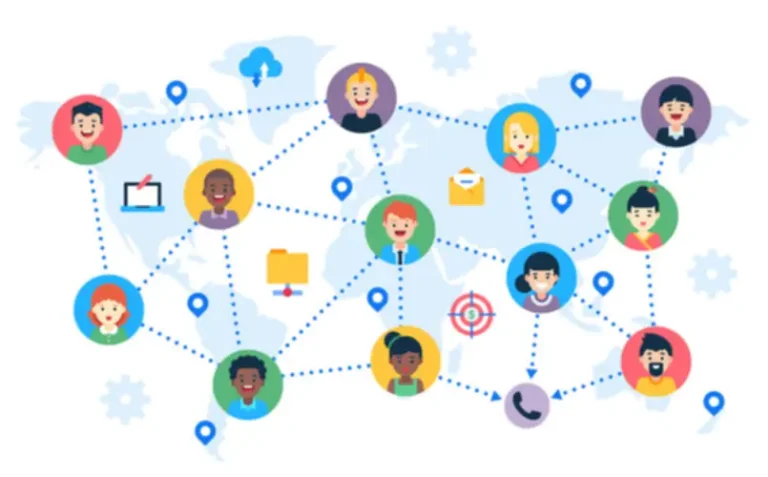10 Tem Data Ethics: Defending Privacy In The Digital Age 2024
Emerging fields like artificial intelligence and machine studying introduce complexities that conventional frameworks may not fully handle. For instance, frameworks might lack specific steering on dealing with algorithmic transparency or mitigating deep studying software quality assurance (QA) analyst mannequin biases. It requires organizations to proactively identify and mitigate potential discriminatory impacts in data assortment, evaluation, and use. For example, during algorithm improvement, groups can take a look at datasets for demographic biases to make sure truthful illustration.

What Are The Moral Issues In Sample Collection?
This case highlighted the importance of ethical data practices and the need for firms to prioritize person privateness and transparency. Addressing these ethical implications requires a commitment to accountable information stewardship, involving steady reflection, analysis, and adaptation of knowledge practices to guard individuals’ rights and promote societal well-being. Data extraction and subsequent evaluation can inadvertently lead to discrimination or bias towards certain teams, particularly if the info collected is not representative or algorithms used for analysis are biased. Ethical practices require actively working to determine and mitigate biases in information collection and analysis processes to make sure fairness and equality. The assortment and use of data, especially private or sensitive data what is data ethics, increase vital privateness issues.
Know Your Laws: Evaluating Ccpa & Cpra Vs Gdpr
If you are interested in training your staff, the courses we’ve developed are brief, enjoyable, and interactive. Integrity is about making sure that private knowledge is appropriate and can’t be manipulated by others (i.e., you must choose to protect your techniques in opposition to hackers). Confidentiality is about making sure that solely the individuals who should have access to the private information are processing it. Basically, you shouldn’t retailer private knowledge which is now not of use for the purpose it was meant.
- When growing AI techniques, we’ll contemplate both the societal profit and any influence to people.
- The article states that pressures to do public good can also be viewed as a persona issue since it seems indicative of dogma that can compromise the integrity of the scientific process, thus leading to research misconduct.
- This helps build user trust and ensures that organizations stay accountable for their knowledge practices.
- The IEEE EAD rules concentrate on promoting human well-being, protecting privateness and individual rights, and ensuring that data is collected and used in a responsible and ethical manner [4].
- As we cope with the moral problems with advancing know-how, it’s vital to stick to those rules to create a future where data makes a optimistic difference.
Making Certain Information Justice And Fairness
This precept demands that corporations present understandable and accessible data to users about their data practices. This may help construct belief and guarantee customers feel knowledgeable and in charge of their personal info. Ethical implications refer to the potential consequences or impacts of actions, selections, insurance policies, or practices on moral rules and values. These implications concern how selections affect the well-being, rights, and dignity of people and communities, and whether or not they align with or violate moral standards and norms. Consistent coaching helps ensure employees understand their obligations when handling private information. Revise training frequently to maintain up with altering knowledge safety laws and rules, and guarantee it covers matters similar to moral data handling, knowledge safety legal guidelines, and information governance insurance policies.
Watch Our Webinar On The Final 4 Years Of Gdpr Compliance And Developments For The Lengthy Run
The GDPR’s second precept units boundaries round utilizing knowledge just for particular actions. This purpose limitation means knowledge is “collected for specified, explicit, and bonafide purposes” only, as said in the GDPR. Data should always be obtained by legitimate means, and there should be designated individuals accountable for defense and confidentiality of knowledge. Data use should include processes to determine, prevent, and off-set poor quality, incomplete, or inaccurate data. Data governance standards and practices ought to be made obtainable for public review, when appropriate. Data ought to be collected and used in ways which are consistent with the intentions and understanding of the person.
By ensuring everybody understands ethics and makes good choices, organizations can deal with these tricky situations honestly and hold their promise to be open and accountable. This may include doing inside checks or bringing in exterior experts to evaluate how data is being handled. By ensuring everyone follows the rules, accountability helps create a tradition where information is managed with honesty and integrity.
Transparency in regards to the purposes for which data is collected, how will most likely be used, and who could have access to it’s important. When necessary, acquiring explicit consent from individuals before collecting their information, particularly in instances where the info assortment just isn’t apparent to the person (e.g., by way of internet scraping), is a vital moral apply. Adhering to these seven rules helps be positive that information is dealt with in a method that respects particular person rights, promotes trust, and aligns with broader societal values. These rules are essential in guiding moral decision-making within the more and more advanced and data-driven world.
This has always been the case to some extent—for example, in late-stage medical trials or in the utilization of gold samples in credit score scoring—but the scope is now a lot larger. Metcalf and Crawford6 present an illuminating discussion of the research/practice distinction, and its validity in the fashionable knowledge context. Advancing knowledge ethics is an ongoing process that requires dedication, collaboration, and flexibility. By prioritizing moral information practices, organizations and individuals can contribute to a extra equitable and accountable data-driven future. They defend particular person rights, promote fairness, and be positive that data is used for the good thing about society quite than inflicting hurt. Embracing data ethics isn’t only a legal and regulatory requirement but additionally an ethical crucial within the digital age.

When skilled companies agency Deloitte surveyed greater than one hundred twenty CEOs in 2022, it found that 91% planned to invest in synthetic intelligence (AI) in the course of the next 12 months. Among these surveyed, 63% seen AI as a device to speed intelligent perception, and 53% believed AI could offer readability to strengthen decision-making. These Good Practice Principles are the results of collaboration within the OECD Working Party of Senior Digital Government Officials (E-leaders) and the efforts of the Thematic Group on Data-driven Public Sector. Spanning 2019 to 2020, this endeavor concerned the OECD Digital Government and Data Unit and the Netherlands’ Ministry of the Interior and Kingdom Relations, together with contributions from OECD member and associate countries.
Ethical data practices result in fairer outcomes, lowered dangers, and better decision-making. They are essential for ensuring that data-driven innovations contribute to social progress quite than perpetuate harm. In summary, ethical issues in information extraction encompass a broad range of practices designed to guard individuals’ rights, ensure legal compliance, and preserve the social accountability of data-driven actions. Ethical implications discuss with the potential effects or penalties of actions, choices, or insurance policies on moral principles and values, considering how these actions align with or violate established norms of right and incorrect. These implications are crucial in assessing the morality and ethical acceptability of choices in varied domains, together with business, healthcare, technology, and analysis.
In this webinar, main proponents of augmented information high quality (ADQ) will look at how… There ought to always be attainable ways to revert to a paper-only guide verification of records. This cover-up was a transparent violation of information ethics, significantly transparency and accountability, and resulted in several lawsuits and damage to Uber’s popularity. If something goes mistaken, such as a data breach or an AI system making a discriminatory determination, businesses must take duty and rectify the problem. To understand why information ethics is important, we need to reflect on the important function knowledge plays in today’s society.
This permits analysts to find relationships between variables of interest without attaching particular data points to individual identities. For instance, your company might acquire and store knowledge about customers’ journeys from the first time they submit their email tackle on your website to the fifth time they buy your product. You have to know your role as a data controller and as an information processor as it performs an enormous a part of accountability in relation to the GDPR.

The UK experience over care.knowledge is a case examine of those conflicting forces.35 Neither are perceptions of privacy the same in all places around the world. Appendix B of Waldo et al.36 explores similarities and variations between nations. One instance is the distinction between the United Kingdom and Scandinavia in attitudes to id cards. Issues of belief within the data and trust within the strategies usually conceal deep ethical concerns, which are not so simply resolved.
This happens when AI within the type of machine studying algorithms can correlate non-personal information with other knowledge and matched to particular people, turning into personal information. AI through algorithmic correlation will weaken the excellence between personal knowledge and different knowledge. Non-personal knowledge can more and more be used to establish people or infer delicate information about them, beyond what was originally and knowingly disclosed [10]. To build and keep belief, businesses should be transparent about their information practices and be held accountable for any missteps. Discover how main corporations are embracing transparency as a aggressive benefit and building ethical data cultures.
The first precept of information ethics is that an individual has possession over their private data. Just as it’s thought of stealing to take an item that doesn’t belong to you, it’s unlawful and unethical to gather someone’s private information with out their consent. In the sphere of artificial intelligence, regulation takes the form of binding requirements, often addressed at the providers of AI solutions, and enforced by the competent authorities. Providers of such systems will face totally different obligations, however privacy just isn’t part of the AI Act, and is dealt with as an alternative by GDPR, with its own units of guidelines. Generally, ethics revolves round moral ideas guiding behavior based mostly on what’s considered proper or incorrect, broader in scope and versatile, relying on voluntary adherence.
Transform Your Business With AI Software Development Solutions https://www.globalcloudteam.com/ — be successful, be the first!



No Comments